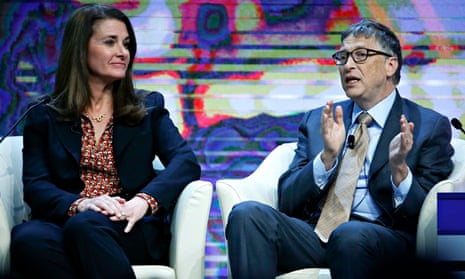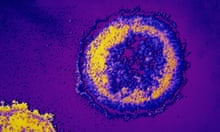Bill Gates believes that a vaccine and new intensive drugs to combat HIV should be available by 2030 and end most new cases of the virus that has killed millions in the past three decades.
The Microsoft founder, whose philanthropic foundation spends tens of millions of dollars on medical research, told the World Economic Forum in Davos that the two “miracles” were within reach.
“We’re pretty optimistic in this 15-year period we will get those two new tools,” he said.
A vaccine was seen as being pivotal in preventing infections among susceptible populations, while new kinds of intense drug treatments should do away with the need for life-long treatment, he added.
The billionaire founded the Bill & Melinda Gates Foundation in 2000. The couple said in their annual letter about the foundation’s work that, along with progress toward a vaccine or a cure, the number of people getting treatment for HIV in sub-Saharan Africa would finally outstrip the number of new infections.
“When we reach that point in the region with the most dense HIV transmission in the world, cases will start going down everywhere around the globe for the first time since the disease was discovered more than 30 years ago,” they wrote.
Gates was also optimistic about the battle against malaria, where work on a vaccine is more advanced than for HIV.
GlaxoSmithKline filed the world’s first malaria vaccine for approval in July 2014.
“We won’t see the end of Aids,” Gates told the Davos forum on Friday. “But both for malaria and Aids we’re seeing the tools that will let us do 95-100% reduction. Those tools will be invented during this 15-year period.”
Bill and Melinda Gates also predicted in their annual letter that the lives of people in developing countries would improve faster in the next 15 years than at any other time in history.
In the UK there are an estimated 100,000 people living with HIV infection – both diagnosed and undiagnosed – of whom about 40% are gay men.
A drug called Truvada has been found in trials – when used as a pre-exposure prophylaxis (PrEP) in HIV negative people at risk of getting the virus – to reduce the transmission of HIV, but has not yet been approved or funded by the NHS for this. The drug may also be used in people who have been exposed to HIV, in combination with another drug, such as raltegravir. This is known as post-exposure prophylaxis (PEP).
There have been growing calls to make Truvada more widely available as a preventative measure in Britain, particularly to gay men.



